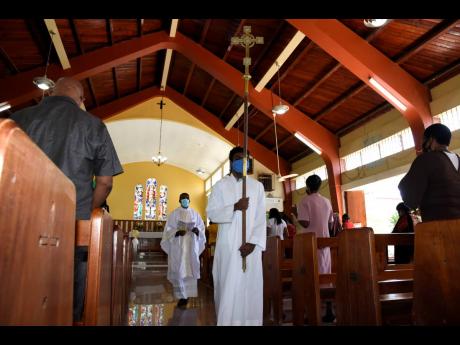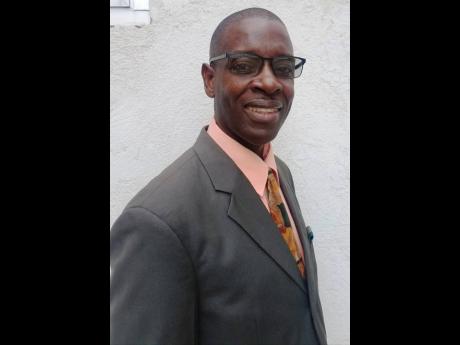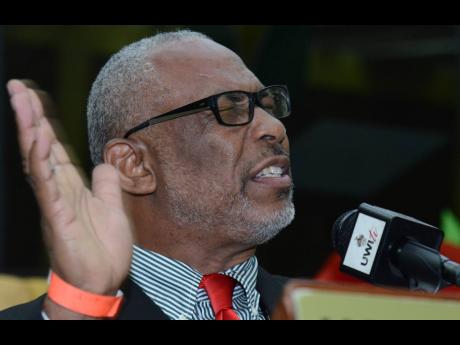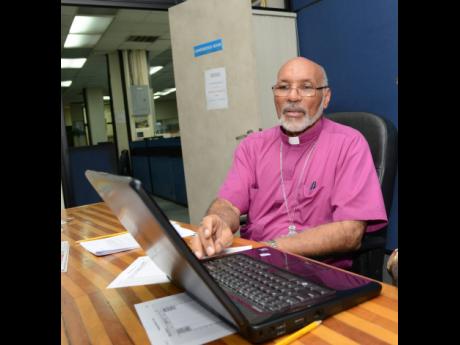Could COVID-19 reshape church attendance forever? - Pastors grapple with prospect that flock, after missing services for months, may never be wooed back
COVID-19 has accelerated the trend towards online church services, but while happy that their reach has, in some instances, tripled since the pandemic, faith leaders are concerned that the current reliance on virtual worship might make in-person attendance less appealing in the long term.
That projection is particularly gloomy for millennials, and the growing distance between clergy and laity is feared to be undermining discipleship. Gathering restrictions have also damaged the engine of highly evangelical churches that drive congregational growth through blaring speakers at mega crusades and big-tent services.
Those are legitimate concerns that have concentrated the minds of clergy, says the Reverend Newton Dixon, president of the Jamaica Council of Churches.
“What I do know is that we are going to have to move in the direction of creating a sort of more technologically adept way of meeting young people even in the physical space,” said Dixon, whose umbrella group represents 11 of the country’s traditional denominations, including the Catholics, Anglican, and Baptists.
The Holness administration had initially restricted congregations to a maximum turnout of 10 after the first case of COVID-19 was recorded in Jamaica in March, but following consultation with the clergy, that hard line was relaxed to allow for more persons to attend.
Under the current protocol, congregants are required to wear masks and to have their hands sanitised. Churches are also required to keep the physical-distancing rule of one person per 40 square feet and to conduct temperature checks.
These restrictions have resulted in shrinking congregations, often devoid of elderly attendees who are at greatest risk of mortal danger from SARS-CoV2, especially if they have underlying illnesses.
MORE EXPENSES
But apart from concerns about their dwindling numbers, clerics are saddled with more expenses while contending with a decrease in contributions to their coffers as more congregants lose their jobs or suffer a decline in income. The novel coronavirus has caused Jamaica’s jobless rate to rise by more than half, year on year, from 7.2 per cent to 12.6 per cent.
Operational costs have climbed because of increased investment in sanitisation, cameras, and other equipment for livestreaming, and the hosting of as many as three services daily to facilitate staggered turnout.
“If you are renting facilities, there is a cost. If you don’t have your own building, you have to be transporting in your equipment. Costs increase in a whole lot of ways,” Bishop Neville Owens, president of the Independent Churches of Jamaica (ICJ), told The Gleaner.
His organisation currently has 400 churches registered, but he estimates that there are more than 4,000 other independent houses of worship across the island that lack denominational support and thus have to foot their own bills.
“It’s not church as usual or per usual, but church unusual,” he said, reflecting on the quantum leap clergy have had to make in digitising their services since March. An estimated 70 to 80 per cent of independent churches are now streaming online, but this requires a different technique.
“One of the key things is to cut your delivery and ministry time shorter and learn to reach people quicker. You don’t have a three-hour service anymore or a two-hour service, so you have to hold people’s attention because you are now dealing with your virtual church and your virtual reality,” said Owens.
WILL COMMITMENT REMAIN?
COVID-19 restrictions have even affected evangelical traditions such as altar calls. Under the new norm, there is no touching and plenty of distance.
Owens does not discount the benefits of having digital church. Independents are now able to reach people in Romania, Yugoslavia, Africa, and all over the Caribbean, but he, too, harbours concerns about the commitment that will exist when the virus is no longer an excuse to miss physical services.
“Some people find it easier after a while. Some people tend to get lazier than normal and more accustomed to staying at home. We have to ensure that people are disciplined. When you are at home, you are tempted to be in your bed, you are tempted to be more relaxed, you are tempted to be less prepared,” he said.
Non-partisan fact tank Pew Research Center conducted a survey in mid-July and found that one-third of United States adults have watched religious services online or on television since the pandemic. A little over half of them – or 18 per cent of all adults – say they began doing this for the first time during the coronavirus pandemic.
While 54 per cent of those surveyed say they are “very satisfied” with the online worship experience, 42 per cent of US adults say they plan to resume going to religious services about as often as they did before the outbreak, while 10 per cent say they will go more often than they used to. Five per cent anticipate going less often.
President of the Moravian Church in Jamaica and Grand Cayman, the Reverend Phyllis Smith Seymour, is optimistic that in-person attendance will eventually resurge to pre-COVID-19 levels.
“I think persons would want to come back. We love to hug, we love the after-church meetings. We love to socialise, we love to eat together, so persons are missing those,” said the senior cleric, noting that most members are already bemoaning the lack of physical fellowship that online platforms cannot deliver.
“The older persons are dying to come back out and hug and kiss and give out their sweeties,” Smith Seymour told The Gleaner.
Most of the 63 Moravian churches are located in Manchester, St Elizabeth, and Westmoreland. Some Moravian leaders are still trying to get a grasp of online platforms, but for the most part, Bible study, prayer meetings, and worship services are facilitated via varying platforms.
YOUTH MAY DISAPPEAR
Smith Seymour has forewarned that the Church may not come out unscathed after the pandemic.
“A personal concern of mine is after COVID, how many children and teenagers do we still have?” she asked.
Already, the number of Christian adherents has been decreasing. Based on the 2011 Population and Housing Census, several denominations, including the Anglican, Baptist, Brethren, Methodist, Moravian, Roman Catholic, and United Church, have experienced declines since 2001. The Anglicans suffered the greatest loss, haemorrhaging almost 20,000 members.
Archbishop for the Province of the West Indies and Bishop of Jamaica, the Right Rev Dr Howard Gregory, finds that the online platforms have bolstered the reach of the Anglican Church as even those who have diverted to other denominations are now participating in their services.
“What we are finding is that where we are using the technology, a lot more young people are tuning in, because they are conversant with the technology, but more than that, they still have a spiritual life which they want to sustain and engage,” he said.
There are nearly 300 Anglican churches in Jamaica. Persons in rural communities have been attending in-person services more than those in urban areas like Kingston, church leaders say.
Gregory believes that physical fellowship is important for believers.
“Christianity is not just about a personal pilgrimage, it is about a journey in community. That is where you find your support in the context of words being proclaimed and fellowship, and all of these things. That is how you grow as a Christian,” he said.




